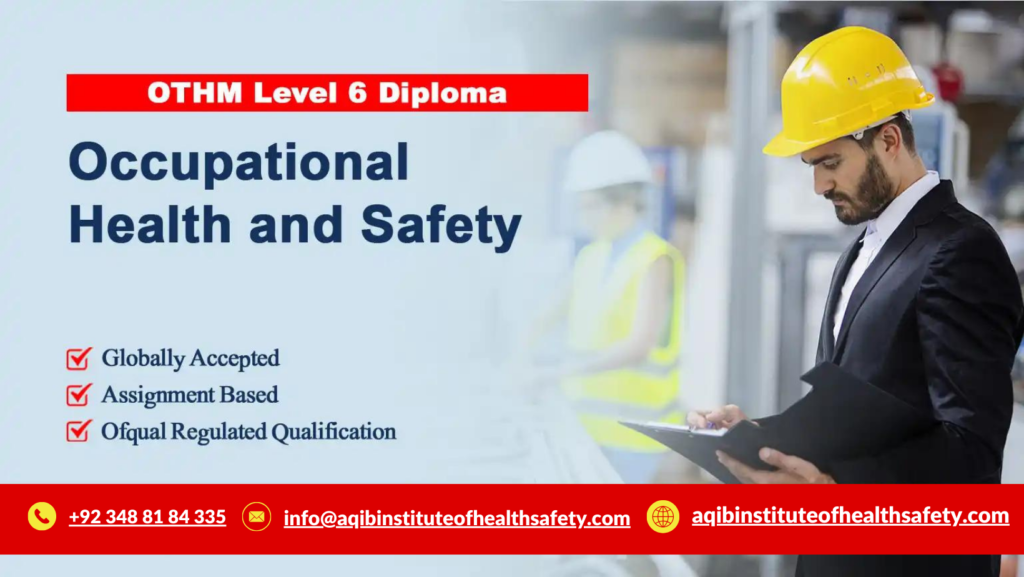
In today’s dynamic business landscape, organizations face a myriad of risks that can impact their operations, reputation, and bottom line. Effective risk management is essential for ensuring resilience and success in the face of uncertainty. The OTHM Level 7 Diploma in Risk Management offers a comprehensive program designed to equip individuals with the knowledge, skills, and competencies needed to navigate and mitigate risks effectively. Let’s explore what this diploma entails and how it can benefit aspiring risk management professionals.
Risk management is the process of identifying, assessing, and mitigating risks to achieve organizational objectives. The OTHM Level 7 Diploma delves into the fundamentals of risk management, covering topics such as risk analysis, risk assessment methodologies, risk appetite, and risk treatment strategies. Participants gain insights into the various types of risks that organizations face, including financial, operational, strategic, and compliance risks, and learn how to develop tailored risk management approaches to address them.
The diploma program introduces participants to established risk management frameworks and standards, such as ISO 31000, COSO ERM, and Basel III. Through case studies and practical exercises, learners examine real-world applications of these frameworks and gain hands-on experience in implementing risk management processes within organizations. Additionally, the program explores emerging trends and best practices in risk management, including the use of technology and data analytics to enhance risk identification and monitoring.
Upon completion of the OTHM Level 7 Diploma in Risk Management, graduates are well-positioned to pursue various career opportunities in risk management, compliance, audit, finance, project management, and consulting. Whether working in the public or private sector, organizations across industries value professionals who can effectively manage risks and safeguard their interests. Moreover, the diploma serves as a stepping stone for further professional development and academic advancement in risk management-related fields.
The OTHM Level 7 Diploma in Risk Management offers a comprehensive and practical approach to mastering risk management. Through a blend of theoretical knowledge, practical skills development, and real-world applications, participants gain the expertise needed to navigate the complexities of risk management effectively. If you’re passionate about mitigating risks and safeguarding organizational success, consider enrolling in this diploma program and embark on a rewarding journey towards becoming a trusted risk management professional.
The OTHM Level 7 Diploma in Risk Management represents a significant step forward for individuals seeking to excel in the field of risk management. This advanced qualification is meticulously crafted to equip participants with the necessary knowledge, skills, and competencies to navigate and mitigate risks across diverse organizational contexts. Delving into a comprehensive array of topics, the diploma program covers essential aspects of risk management, including risk analysis, assessment methodologies, mitigation strategies, crisis management, and regulatory compliance.
Participants embark on a transformative learning journey, where they acquire practical insights and hands-on experience in developing robust risk management frameworks. Through interactive sessions and real-world case studies, learners master the art of implementing effective risk management processes and making informed decisions to safeguard organizational objectives. The program emphasizes the importance of proactive risk identification and mitigation, empowering professionals to anticipate and address potential threats before they escalate.
The OTHM Level 7 Diploma in Risk Management caters to professionals across various sectors, including risk management, compliance, audit, finance, and project management. Whether you’re a seasoned risk management professional looking to enhance your expertise or a newcomer aspiring to enter the field, this diploma provides the ideal platform for career advancement. By acquiring advanced risk management skills and credentials, participants position themselves as invaluable assets to their organizations, capable of mitigating risks and driving sustainable growth in an increasingly uncertain business landscape.
The OTHM Level 7 Diploma in Risk Management qualification consists of 6 mandatory units for a combined total of 120 credits, 1200 hours Total Qualification Time (TQT) and 600 Guided Learning Hours (GLH) for the completed qualification.
| Sr# | Unit Title | Credit Hours |
|---|---|---|
| 1 | Principles of Risk Management | 20 |
| 2 | Strategic Risk Management | 20 |
| 3 | Responsible Leadership and Governance | 20 |
| 4 | Organisational and Environmental Risk | 20 |
| 5 | Risk Analysis and Modelling | 20 |
| 6 | Advanced Research Methods | 20 |
The course is suitable for professionals and individuals interested in advancing their knowledge and expertise in risk management. Specifically, it caters to:
Here are the learning outcomes for each study unit:
Completing the OTHM Level 7 Diploma in Public Administration qualification empowers learners to advance their careers or further their studies. This qualification enables learners to pursue relevant master’s top-up programs with advanced standing at numerous universities in the UK and overseas.
This course is suitable for professionals working in risk management, compliance, audit, finance, project management, and related fields. It is also ideal for individuals aspiring to enter the field of risk management or enhance their existing skills.
Graduates of this course can pursue various career opportunities in risk management, compliance, audit, finance, project management, and consulting. They may also advance to higher-level positions within their organizations.
Yes, the qualification is recognized internationally as it is approved and regulated by Ofqual (Office of the Qualifications and Examinations Regulation). This ensures that the diploma meets high-quality standards and is widely accepted by employers and educational institutions worldwide.
Yes, successful completion of this diploma may qualify learners to progress to relevant master’s top-up programs with advanced standing at many universities in the UK and overseas.
For entry onto the OTHM Level 7 Diploma in Risk Management qualification, learners must possess: